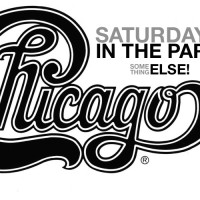Chicago’s “Saturday in the Park” (or “SITP” as many fans refer to it) has often been called the quintessential 1970s single. Practically every music fan of the era is familiar with “Saturday in the Park.” Chicago V, from which the single is pulled, is almost completely composed by keyboardist/vocalist Robert Lamm. Fans have called V Chicago’s greatest album. Given the quality of the material and complete lack of filler, it’s easy to see why this opinion is shared among so many.
Make no mistake, “Saturday in the Park” is Lamm’s showcase from beginning to end: The composition begins with his famous piano intro, the horns and rest of Chicago kick in, and the listener is riding a wave of pure pop pleasure: “Saturday in the park, I think it was the Fourth of July.” Irresistible!
Robert Lamm has said in many interviews that the song wrote itself. He took a stroll through New York City’s Central Park, and “SITP” emerged as a kind of soundtrack to the black-and-white film he shot there. “Robert came back to the hotel from Central Park very excited after seeing the steel drum players, singers, dancers and jugglers,” Chicago saxophonist Walt Parazaider later remembered. “I said, ‘Man, it’s time to put music to this!'”
In the 1970s, you could occasionally get away with different lyrical themes in pop songs. (Yes, I did say pop songs) With “Saturday in the Park,” Chicago is beginning (no pun intended) the transition – for better or worse – from cutting-edge jazz/rock group to Top 40 pop band. Lamm’s lyrics are sunny, optimistic and extremely positive, as is his lead vocal: “Listen children, all is not lost, all is not lost, oh no.”
At the end of each phrase, Lamm sings “can you dig it?” and bassist/vocalist Peter Cetera answers: “Yes, I can!” During the Terry Kath era, for the most part, Lamm is very generous in giving lead vocals to the other two vocalists in the band, Cetera and Kath, Chicago’s guitarist/vocalist/heartbeat. Here, the tempo shifts and the three harmonize the bridge with the horns providing the perfect accompaniment.
One would be remiss to not point out Cetera’s stellar bass work (trivialized in the band’s recent trash-talking documentary), Danny Seraphine’s incredible drumming and Kath’s important guitar fills. The original rhythm and piano figure return, the final verse is harmonized and “SITP” concludes with a final piano chord.
Chicago VI, the next album, highlights a sea change for the band: shorter, more commercial songs, less soloing, etc. Former band leaders Lamm and Kath would find themselves adrift. In fact, Robert Lamm never wrote another smash single or sang a lead vocal on a hit. Most of his compositions after V wound up as B-sides. Despite their artistic and personal differences, trombonist James Pankow and Peter Cetera were suddenly driving the bus going forward, writing most of the hits.
Cetera sang just about every lead vocal on Chicago’s subsequent hits, until he left in 1985. (Shared leads on “Wishing You Were Here” with Terry Kath and “Hard Habit To Break” with Bill Champlin were the only exceptions.) It seems Lamm used up most of the cream of the 100 songs he brought to Chicago in their early days and, despite his writing half of the next album, none of the songs were considered as singles – and most qualify in my opinion as decent filler.
Lamm’s compositions didn’t return to the amazingly high bar he set for himself with Chicago’s first four studio albums until 2003’s superb solo album Subtlety and Passion. In the meantime, enjoy this piece of pop brilliance from a master at the top of his game.
- Chicago, “Watching All the Colors” (2014): Saturdays in the Park - January 22, 2022
- Chicago, “Love Lives On” from ‘Chicago XXXVI: Now’ (2014): Saturdays in the Park - January 8, 2022
- Chicago, “More Will Be Revealed” from ‘Chicago XXXVI: Now’ (2014): Saturdays in the Park - December 11, 2021



Pop brilliance indeed! The album that made me a fan!